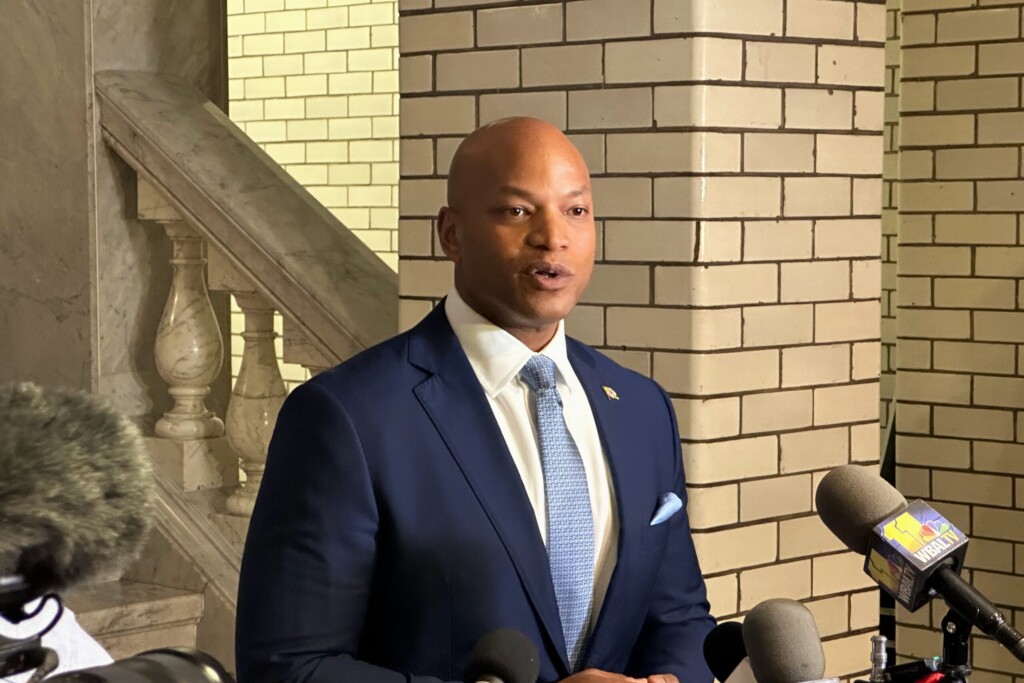Moore’s ‘feeling good’ about housing package headed to his desk

All three bills in Gov. Wes Moore’s (D) affordable housing package have received final approval from both chambers of the General Assembly and are on the way to his desk.
The bills were largely finalized on Saturday, when the Senate voted on some of his bills that had already been approved by the opposite chamber. But the House had to review the legislation one last time Monday before the bills officially landed on the governor’s desk.
Moore told reporters Monday he is pleased with the housing package.
“We’re feeling very good about where we are,” he said. “And this is going to be the most aggressive housing package in the history of the state of Maryland.”
One of the bills that was sent to the governor Monday was House Bill 538, which aims to incentivize developers to add affordable housing options in future developments and would allow certain development projects to exceed typical density limits if the new development incorporates a certain percentage of affordable housing units.
The other is HB 693, known as the Renters’ Rights and Stabilization Act, Office of Tenants and Landlord Affairs in state government, which would help tenants know what protections and legal actions they have under Maryland law. The bill also raises certain fees involved in the eviction process to reduce the number of unnecessary evictions, among other measures.
Both bills were amended during the legislative process, and parts of the governor’s bills were watered down to be friendlier to landlords and housing developers.
The final bill in Moore’s housing package is HB 599, which would create the Maryland Community Investment Corporation, a state entity that would make loans or investments aimed at developing and improving low-income communities. That legislation was ahead of the other bills in the legislative process and was sent off to the governor last week.
“It’s going to be a housing package that is going to focus on protecting renters,” Moore said. “It’s a housing package that’s focusing on places that we should be building additional housing, and we should be able to build additional housing. And it’s making sure that we have the capital to be able to do that.”
That said, some renter advocates were focused on bills that did not move on Sine Die, specifically HB 477. The “Good Cause” eviction bill would have required landlords to provide an official reason to issue an eviction or non-renewal of a lease. But come midnight, that bill languished without a vote from the Senate Judicial Proceedings Committee.
The good cause eviction bill was sponsored by Del. Jheanelle K. Wilkins (D-Montgomery) and had won approval from the House of Delegates.
The Montgomery County Renters Alliance said in a legislative recap email ahead of Sine Diethat the good cause eviction legislation is “perhaps the most important renter protections” bill.
“Without these reasonable protections, Maryland will continue to see the forced migration of working, low-income families and seniors and the expensive impacts of housing instability,” Matt Losak, executive director for the renters advocacy group, said in a written statement.
Meanwhile, other tenants’ rights advocates are celebrating the passage of the Tenants Safety Act, or HB 1117, sponsored by Del. Vaughn Stewart (D-Montgomery).
This bill is not part of Moore’s housing package, but advocates believe it will help provide better living conditions for renters by making the “escrow process” more accessible when landlords do not adequately address life-threatening repairs, by enabling tenants to file a complaint with the local district court and put rent payments in escrow while the complaint is adjudicated.
“This win represents a beacon of hope and aims to empower tenants and rebalance the scales in favor of those who too often bear the weight of poor living conditions and exorbitant rents from their slumlords,” said Matan Zimer, representative of the Renters United Maryland in a written statement.
“The Tenant Safety Act is a critical step forward in addressing the stark disparities between powerful slumlords and vulnerable tenants,” Zimer said.




 Creative Commons Attribution
Creative Commons Attribution